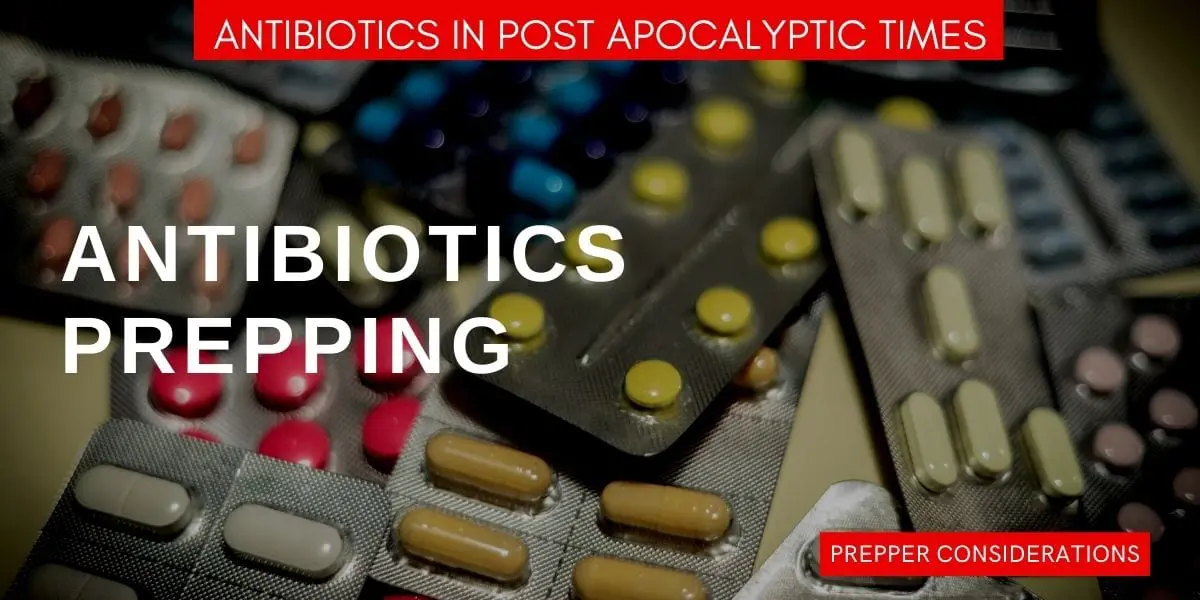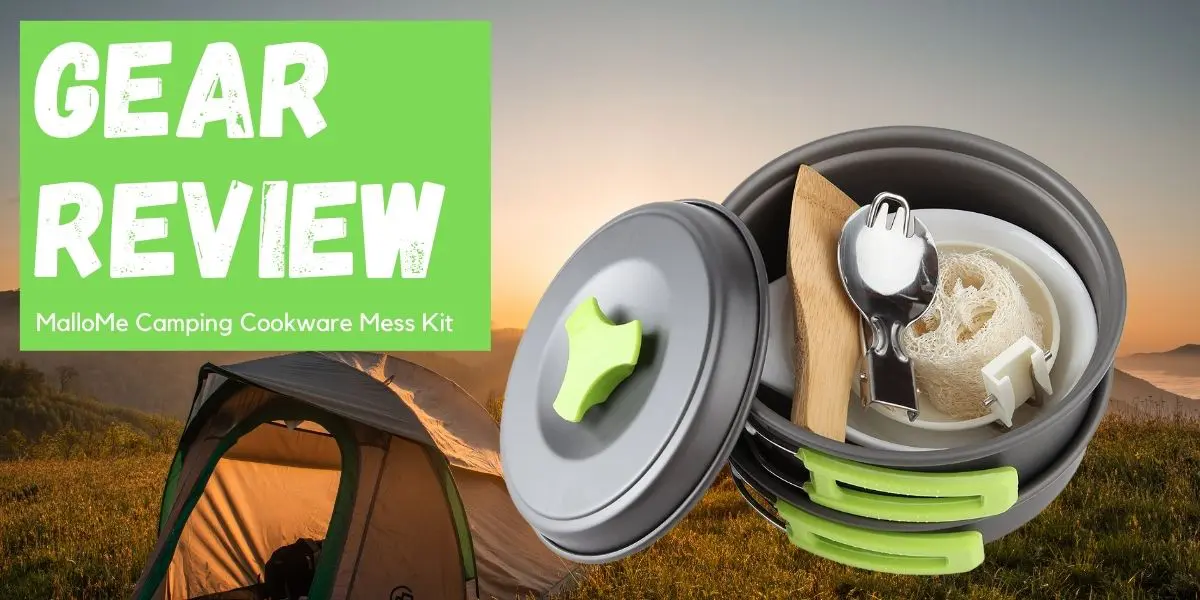WHY TEOTWAWKI ANTIBIOTICS?
A serious concern for many preppers is the ability to receive medical aid in a full-on TEOTWAWKI (The End Of The World As We Know It) situation. After all, in such a crisis, the system will certainly collapse and we will be left with who and what we know. Likewise, when it comes to medication we will have what we have on hand or that we can somehow barter for from others. This could be even more amplified if the particular TEOTWAWKI is a pandemic. As many saw during the COVID pandemic associated supplies quickly became unavailable. Latex gloves anyone?
Amazon Disclaimer: We provide affiliate links to amazon products when appropriate to the content discussed. These links help to fund our effort to bring quality information to the Modern Warrior Project community.

Understanding this real concern many preppers try and mitigate this potential threat by stocking and storing antibiotics for just such an event. Before I go any further I’ll make a few quick legal disclaimers. These methods if done should be done so and only utilized for/during a true TEOTWAWKI situation. It is not advisable to self-aid during normal times. If we have medical facilities available we should certainly leverage their skills for our treatment.
Additionally, some of the methods here may be illegal where you live. Check all local laws before considering any of the below options. Misuse of antibiotics can cause more problems than lack of in some cases, and overuse, as well as incomplete cycle use, are likely responsible for many of our antibiotic-resistant diseases out there. Finally, I am not a medical professional and not offering you medical advice. This article is for informational purposes only.
Back on topic. Diseases and illnesses don’t simply go away because the world collapses. In fact, it could be speculated that they become more rampant due to declining conditions. With this in mind, every prepper should consider a number of prepping medical strategies. One such strategy is as mentioned above storing antibiotics.
This can be a challenging endeavor for a variety of reasons, mainly because you can’t simply buy them off the shelf like you can say water. That’s why you want to address this prep sooner than later so you can work through the challenges to get yourself optimally prepared for any situation.
7 Primary Antibiotics For Prepping
There are a few primary antibiotics that you should aim to have in your storage supply. To be more precise there are 7 important antibiotics you want to try and acquire.

Following are the antibiotics along with some of the common uses for each of them:
Sulfamethoxazole (400mg)
- Typhoid Infection
- Plague prevention
- Intestine infection
Amoxicillin (preferably the 250 as well as the 500 mg)
- Chest infections like pneumonia
- Urinary Tract Infection
- Ear Infection
Metronidazole (250 mg)
- Skin Infection (such as rosacea)
- Vaginosis
- Mouth Infection (such as infected gums and dental abscesses)
Ciprofloxacin (store these in both the 250 and the 500 mg)
- Sexually Transmitted Infections (STI)
- Conjunctivitis
- Bone Infections
Ampicillin (again, both the 250 and the 500 mg)
- Meningitis
- Throat Infection
- Lung Infection
Cephalexin (250 and 500 mg)
- Respiratory Infection
- Genital and Urinary Tract Infection
- Skin Infection
Doxycycline in 100 mg (if you’ve served in the military you’re probably familiar with this one for sure…at least from my experience)
- Skin Infection
- Sexually Transmitted Infection (STI)
- Chest Infection
Work With The Professionals
If you have a medical condition that requires regular use of antibiotics, or a weakened immune system you may be able to talk your doctor into prescribing you a few months supplies to keep on hand. In fact, you may be able to without any condition. The approach I would take for this is simply honesty. I would explain exactly what my intent was. Depending on the doctor your efforts may be rewarded by just such a prescription.
Of course, you want to stock up as much of the above list and in a good bit of quantity as you can, but you may not be so lucky as to have a doctor aid in this effort. That doesn’t mean you need to throw in the towel just yet. One relatively common prepper method to acquire survival antibiotics is to hit up the local veterinarian’s office as well as the local pet store.
Animal Antibiotic Considerations
You want to store as many of these as you can for upcoming disasters. However, what happens if you can’t get all of the medication you need lined up? You can do what some other preppers are doing and buy the equivalent of human antibiotics right off the shelf in your local veterinarian’s office and you don’t need a prescription to get this medication. In fact, if I remember correctly this was even talked about in one of the Doomsday Prepper episodes on tv years ago.
You see some of the medications that are prescribed to animals are essentially the same as those given to humans. For instance, Fish Mox Forte is Amoxicillin and even says as much on the label. Another popular one is Bird Biotic which is Doxycycline. These can be bought off the shelf at pet stores. That said it may not hurt to simply talk to your local vet and approach him as you did the doctor and see if he or she would be willing to assist you in gathering your prepper antibiotics.
Save Your Own Prescriptions!
Before I move into this point let me state that I’m not implying you shouldn’t finish your prescribed antibiotic cycle. As I stated above that is ill-advised for a number of reasons. Often you start to feel better before the infection is actually completely cured. Stoping the cycle short can allow you to slip back into illness, and/or allow the particular infection to reproduce and spread with a new antibiotic resistance to that particular antibiotic. However, there are many occasions that your doctor may decide mid-cycle to switch your antibiotic for another one. In this case, your left with leftover medication that you can stockpile for a SHTF scenario.
Should I Toss My Prescription Medication When They Expire?
In short, No! You see most medications are fine well after the listed expiration date….I’m talking beyond a decade! I’ll validate that statement in a minute, but first, let’s talk about that date. Due to a law passed in 1979 all manufacturers are required to put an expiration date on their medication. This date represents the date that they can still guarantee the full potency of the drug as well as its safety. In most cases I would speculate it is likely based on economics more than anything, but I’m speculating here. Think about it though from a profit perspective. It benefits me to find that sweet spot of production distribution and expiration for optimal profit (ie. I don’t mind if a pharmacy has to replace my product because it expired…that’s just more sales). Regardless, the date means very little.
The Study
Most of what we know about drug expirations comes from an FDA study conducted by request from none other than the US Military. You see they have to store a lot of contingent medication and we’re probably dumping a lot of money down the drain each time a lot expired and they trashed it. The study found that of the 100 drugs studied, 90% we still good to use even after 15 years beyond the expiration date! You can read more about the study and expirations in this Harvard Medical School article HERE if you like. Bottom line, I personally don’t throw away medication due to an expiration date.
Storing Them Properly Is Important
Heat and Moisture are the enemies of many things, and antibiotics and medications, in general, are no exception. You want to store your hard-earned survival medicine in optimal conditions to best ensure potency and long shelf life. This equates to a cool, dark, and moisture-free environment. Many choose to store them in a freezer, which is great provided that you vacuum seal them first. Otherwise, a cool dry cabinet or the like will work as well. One note here is that you probably don’t want to keep them in your bug-out bag or load-out kit as that likely does not fit the storage criteria we just discussed. An option here could be to place a reminder or the like to pack it before evacuation. Of course, if you do keep your bag in a cool dry place then go for it. They should store just fine.
Conclusion
In the end, there are many ways a prepper can choose to approach stocking antibiotics. Ultimately what is important is that consideration is given to the potential problem and various mitigating courses of action are put in place to best set you and your family up to weather any kind of storm. Do you have any tips or tricks related to this topic you’d like to share? If so please comment below and tell us about it!






























